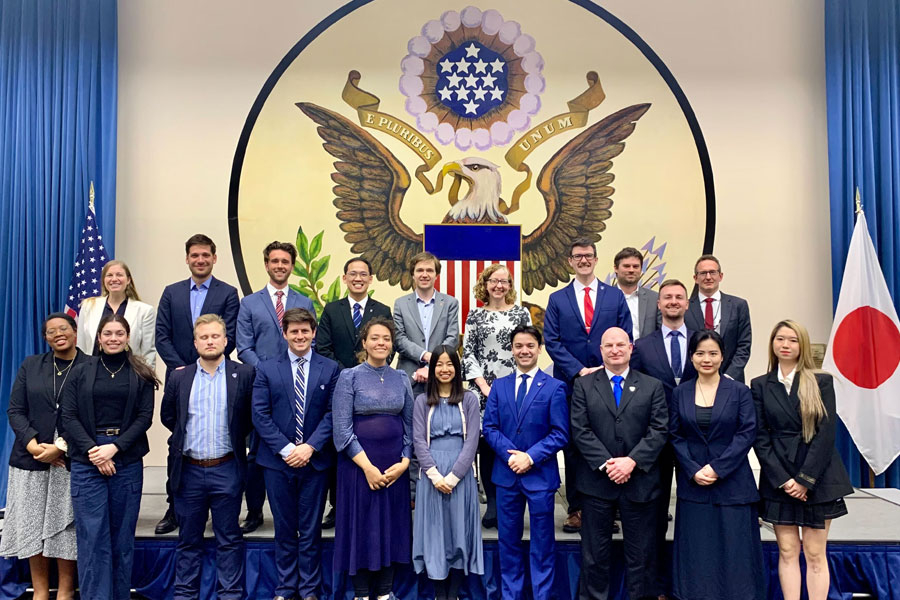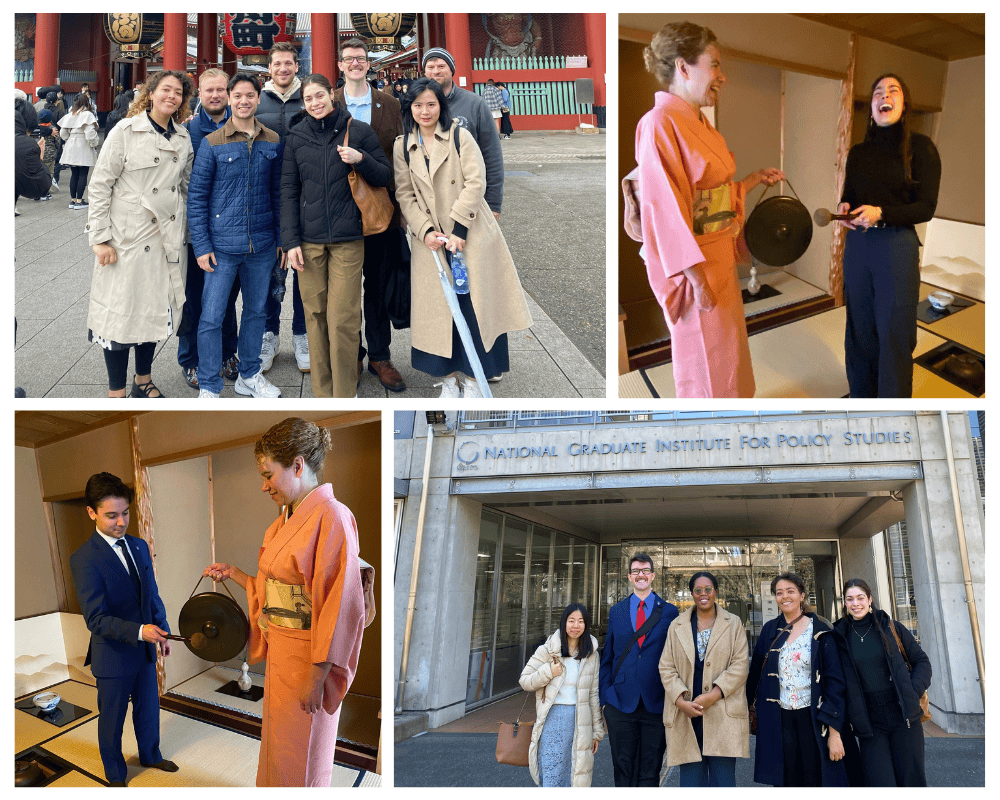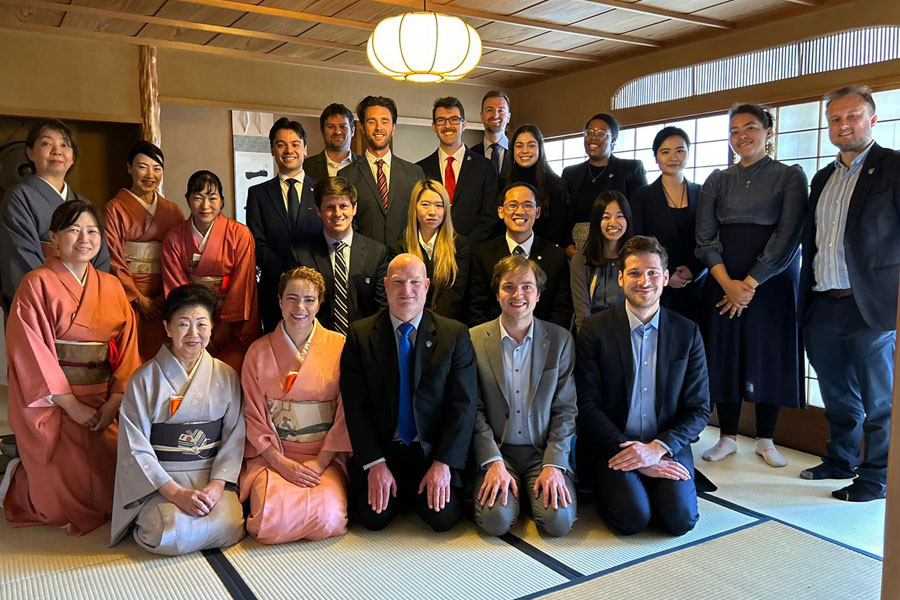Cultural Awareness, Geopolitical Issues in Focus During Study Trip to Japan

Sixteen Johns Hopkins SAIS students and two administrators visited Tokyo, Japan from March 18 to 22, 2024—as part of the course, U.S.-Japan Relations in Global Context.
Taught by Adjunct Professor William Brooks, former head of the media analysis and translation unit at the United States embassy in Tokyo, this course examines the evolution of the U.S.-Japan strategic relationship in a changing global and regional geopolitical environment—with a special emphasis on economic, political, and technological issues. The students traveled to Tokyo to attend briefings and conduct interviews with government officials, policymakers, academics, and business leaders for their capstone research papers.
“It has been terrific teaching this course,” said Brooks. “Not only does it give me the chance in the lecture to explore long-term trends in the U.S.-Japan relationship since Commodore Matthew Perry arrived with ships to reopen trade with Japan in 1853; it also provides students the opportunity to write high-quality, original papers that are researched in Washington and Tokyo and later compiled and published.”
“Our yearly capstone class and trip, which provides students with the resources to travel to Japan and conduct research, embodies the school’s longstanding commitment to a better understanding of Japan,” said trip participant Devin Woods, senior research associate and special assistant to the director of the Edwin O. Reischauer Center for East Asian Studies. “As U.S.-Japan relations grow ever stronger and more critical to the stability of the Indo-Pacific region and international order, it is crucial that we continue to encourage our talented students to study this topic.”
The study trip had three primary objectives. Students explored Japanese culture and history through participation in a traditional tea ceremony and visits to culturally significant shrines, temples, and museums. They also participated in group briefings at the U.S. Embassy Tokyo and Temple University’s Japan Campus focusing on contemporary issues in domestic politics, international security, and political economy.
Students also interviewed scholars, journalists, policymakers, diplomats and other officials to gather information for their individual research papers. The consulted experts were affiliated with the Bank of Japan, Nikkei Asia, the Research Institute for Peace and Security (RIPS), the Sasakawa Peace Foundation, the National Graduate Institute for Policy Studies (GRIPS), and the Japan International Cooperation Agency (JICA).
Another highlight of the trip was engaging with the large SAIS alumni community based in Tokyo. With special thanks to SAIS alumni Toru Takama, Taishu Takeda, and John Chesen, students and alumni gathered at a Baird Beer location for a more casual discussion on U.S.-Japan relations. Baird Beer was founded in Japan by SAIS alumnus Bryan Baird in 2001.
“As a Japanese student, I have previously studied Japanese history and politics,” said Eri Nakamura, a second-year student in the Master of Arts in International Relations. “However, this course allowed me to incorporate American perspectives and those from other countries through discussions with students from all over the world.”
Peter Coats, a second-year MAIR student, said he had always wanted to study Japan academically because of the country’s geopolitical importance. “Japan will play a huge role in future developments in northeast Asia,” he noted. “In addition, the opportunity to travel to Japan as well as have my research paper published in a respectable academic journal is a perfect way to complete my SAIS education.”
Students will use the remainder of the semester to complete their research papers, which will be published by the Edwin O. Reischauer Center for East Asian Studies in the Yearbook on U.S.-Japan Relations, a SAIS tradition dating back to the 1980s.
Enjoyed reading Cultural Awareness, Geopolitical Issues in Focus During Study Trip to Japan? Learn more about what Washington DC campus has to offer.